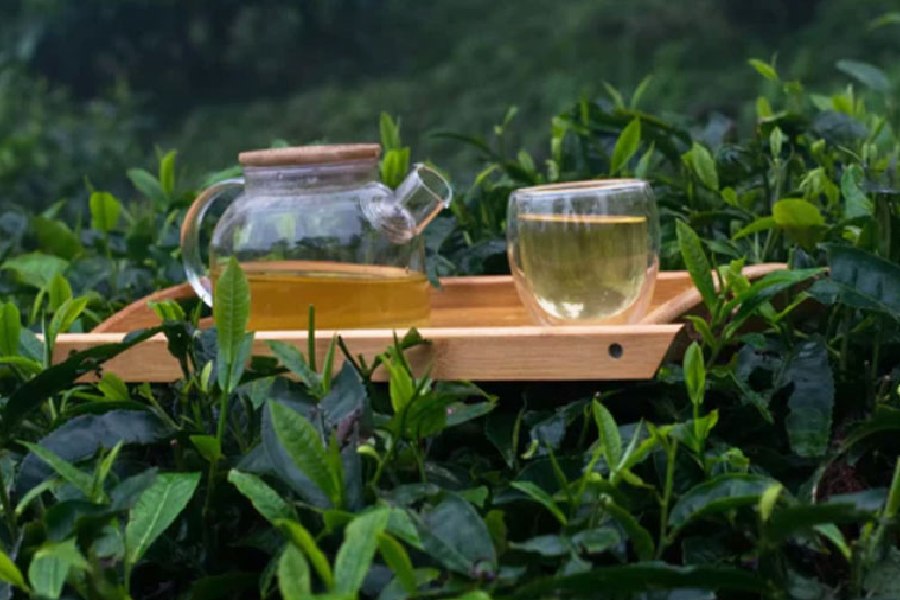The Darjeeling Tea industry wants the Centre to include Nepal tea on the list of items to be tested with India and Nepal having started discussions on establishing food laboratories at key trading points between the two countries.
Sources said discussions to set up well-equipped food laboratories in major trading points between the two countries, close to Panitanki in Bengal, Jogbani (Bihar), Nautanwa and near Nepalgunj Road (Uttar Pradesh) and Banbasa in Uttarakhand, were held during the India-Nepal Inter Governmental Sub-Committee (IGSC) meeting held in Kathmandu a few days ago.
India and Nepal share borders of 1,751km from Sikkim to Uttarakhand.
“Tea is classified as ‘beverage’ and not ‘food’. We, however, appeal to the Centre to include tea as an item to be tested at food laboratories,” Sandeep Mukherjee, principal advisor of the Darjeeling Tea Association, told The Telegraph.
The issue of setting up food laboratories along the border trade routes was initially raked up by Nepal. In June 2023, the Nepalese authorities stopped trucks containing fruits and vegetables entering into the country from India raising concerns about the alleged excessive use of chemical fertilisers and colouring in the food items.
The Darjeeling Tea industry is sceptical of the maximum residual level in Nepal tea. “Our product (Darjeeling Tea) is tested by various agencies but Nepal tea enters our country without any checks,” said Mukherjee.
Many planters believe Nepal tea is adversely affecting the Darjeeling industry. Darjeeling planters believe that many unscrupulous traders pass off Nepal tea as Darjeeling Tea in the country. Nepal tea is considered similar to Darjeeling Tea because of the similar terrain and other geographic conditions but comes at a lower price because of factors like low cost of production
“In 2023, 17 million kgs of Nepal tea entered India. The Darjeeling industry is only producing about six million kgs of tea now,” said Mukherjee.
The Darjeeling Tea industry is passing through one of its worst phases which have been brought about by a number of factors like low yield, high absenteeism among workers and high production costs. The planters want the government to protect India’s product.
The planters had in the past suggested a number of initiatives to control the inflow of Nepal tea into India.
A planter had wanted the import of Nepal teas to be allowed in packets, with labels clearly mentioning the origin of the product.
“This will eliminate the scope of adulteration or labelling of Nepal tea as Darjeeling tea or selling Nepal tea naming Darjeeling tea. With this, Nepal tea could be sold in India only under the label of Nepal origin. With no availability of Nepal tea in bulk, there would be no scope of adulteration/relabelling,” a planter had earlier said.
Many also want India to impose a 40 per cent duty on all Nepal teas imported to India, the same as the line of 40 per cent duty imposed by Nepal on the import of Indian teas in their country.
“At the moment no duties are imposed on the import of Nepal tea,” said Mukherjee.
Given that the India-Nepal trade relation is often viewed from the prism of geopolitics and China’s continuous effort to step up clout over India’s Himalayan neighbour, the Darjeeling Tea industry’s efforts to curb the import has yielded little results.










